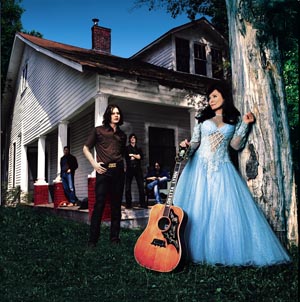(THIS ARTICLE IS MACHINE TRANSLATED by Google from Norwegian)
- Sometimes the music industry blows hip hop up, and then comes an album that takes the music back to its roots. "Illmatic" was one such album, one that showed what hip hop was all about: Street culture, graffiti, rhyme and DJing. It is good to be reminded that hip hop is street culture music where we only use old records and a microphone, said the rapper and producer Large Professor when I interviewed him in connection with his playing job at Øyafestivalen 2002.
100 percent solid
Large Professor was one of the producers on the debut album of the young and unknown rapper Nasir Jones – aka Nas – together with the cream of hip hop USA in 1994: Q-Tip, DJ Premier, LES and Pete Rock. It was the first important album where a solo rapper could pick producers from the top shelf – without being part of a group or a permanent collaboration with a DJ / producer.
It was also one of the last big hip hop albums without the need to squint at the charts and the pop industry. "Illmatic" was not only a 100 percent solid debut album, but has also ended up as a holy grail for those who long to return to a golden hip hop age – before the music form became the leading locomotive in the American music industry. This year the album was released in a new edition with six bonus tracks, called "10 Year Anniversary – Illmatic Platinum Series" (Sony Urban Music / Columbia). It's still just as fabulous, but what hip hop anno 2004 needs is a new album that can take hip hop back to its raw roots as Nas did ten years ago.
Country veteran
Where the young and unknown Nas received help from established hip hop producers in 1994, the veteran Loretta Lynn (70) has this year been promoted by the young musician Jack White (28). Together with his sister Meg White, he brought rock blues to light again with the duo The White Stripes – which through four albums has become one of the hottest in rock heaven.
Jack White has admired Loretta Lynn for a long time, and on the album "Van Lear Rose" (Interscope / Universal) he has had the opportunity to collaborate with the country legend. He has arranged and produced the album, sings a duet with her and otherwise contributes on guitar, piano, rhythm instruments and chorus. And not least: He makes Lynn known to a younger audience, who become curious about the record due to Jack White's deep involvement.
Loretta Lynn got help from Nashville songwriters on her previous album, "Still Country" (2000), but this time she has written all the songs (she gets assistance on two of them) herself. It's actually her first time, and she's definitely rich in herself and her life experience. As in the autobiographical "Story of My Life", where she sings about her own life with liberating self-irony and honesty. "It was a big hit, made a big splash / What I wanna know is what happened to the cash", she sings about the film about her life, "Coal Miner's Daugter" from 1980 with Sissy Spacek in the lead role.
life lessons
Loretta Lynn made her album debut as early as 1963, but "Van Lear Rose" is only her third album since 1985 – and it's been a long time since critics have been thrilled with her traditional Nashville country. Now people who know her career better than I do say that this is her best album since 1973's "Louisiana Woman Mississippi Man", and I think "Van Lear Rose" does for country exactly what "Illmatic" did for hip hop.
It cuts down to the bone, multiplies away the superficial and kitty soundtrack that characterizes a lot of modern country in favor of a rougher and more minimalist rock character. And it reminds us that country is first and foremost white man's blues, packed as it is with despised wives, love grief, working class life, drunkenness, murder, jealousy and life-affirming hillbilly parties. With this, Jack White continues his exploration of classical americana, which he began with The White Stripes' cover versions of classical blues songs and continued with traditionalist bluegrass on the soundtrack to "Cold Mountain" (Sony).


